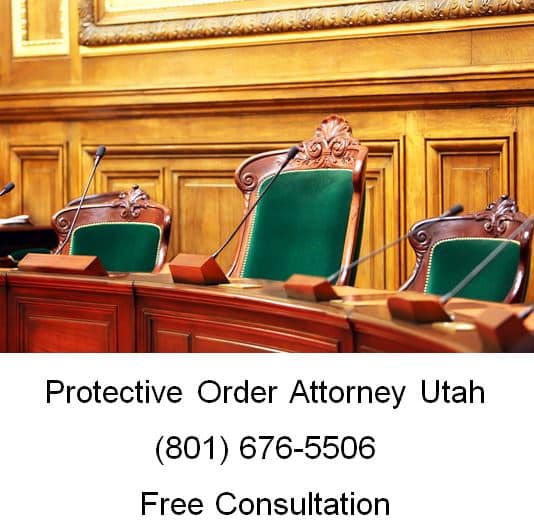An order of protection is a powerful tool. Throughout Utah, orders of protection help to protect individuals and their families from threats of violence, or abuse at the hands of another.
Filed by a petitioner, a protective order can require the respondent to stay away from a family home or workplace, require payment of child support, compel someone to refrain from certain acts or behaviors, and provide penalties for violating those conditions.
The issuance of an order of protection through the Family Court[H1] is a civil proceeding that intercedes between family members or intimate partners. Given the occurrence of domestic violence in our society, the necessity of protective orders is unquestioned in the proper circumstances.
Too often, an order of protection is sought not for protection, but as an emotional ploy—or worse—a tactical move in a heated divorce or child custody proceeding.
With our focus on family law, we vigorously defend clients against protective orders obtained and used for wrongful reasons, including the following:
- Manipulating, controlling, or abusing
- Providing a quick means of eviction
- Influencing the outcome of a child custody or divorce action
- Restricting or eliminating access to children by the respondent
- Obtaining temporary child support
- Enacting vengeance
An order of protection is a needed safeguard in our society. Nevertheless, an improperly obtained protective order is by itself abusive. If a protective order is wrongfully obtained against you, immediately seek experienced counsel—for your own protection.
Who is Most Likely to Get Divorced in America?
The idea that half of all marriages end in divorce is a complete myth, as you may know. The truth is that the divorce rate peaked in the 1970s and has been declining steadily ever since. However, according to some recent research published in the Washington Post, there are certain groups and demographics that tend to have much higher divorce rates than others.
The following is some insight from this study into who is most likely to get divorced or married more than once in the United States.
- Education: People who have received at least a bachelor’s degree from a four-year university are significantly less likely to get divorced than people who have a high school education or less. People who have post-baccalaureate education split the difference, with women more likely to get divorced than women with bachelor’s degrees, but men with advanced degrees less likely to get divorced than men with bachelor’s degrees.
- Race or origin: The study took a close look at which races were most likely to get divorced at least once. Native Americans had the highest divorce rate (45 percent for men, 44 for women), followed by African Americans (42 percent for men and women), Caucasians (38 percent women, 36 percent men), Hispanic (30 percent women, 27 percent men) and Asian (18 percent women, 16 percent men).
- Employment status: People who are employed (38 percent women, 32 percent men) are less likely than people who are unemployed (44 percent each) to have gone through a divorce or had more than one marriage.
Free Initial Consultation with a Protective Order Lawyer in Utah
Getting a restraining order or protective order can hurt you emotionally, financially, and devastate your career. If you need help with a protective order, call Ascent Law for your free consultation (801) 676-5506. We want to help you.
8833 S. Redwood Road, Suite C
West Jordan, Utah
84088 United States
Telephone: (801) 676-5506
Recent Posts
I’ve Fallen and Need an Attorney
Relocating after Divorce in Utah
Life Insurance Beneficiary lawyer
From https://www.ascentlawfirm.com/improper-protective-orders/


No comments:
Post a Comment